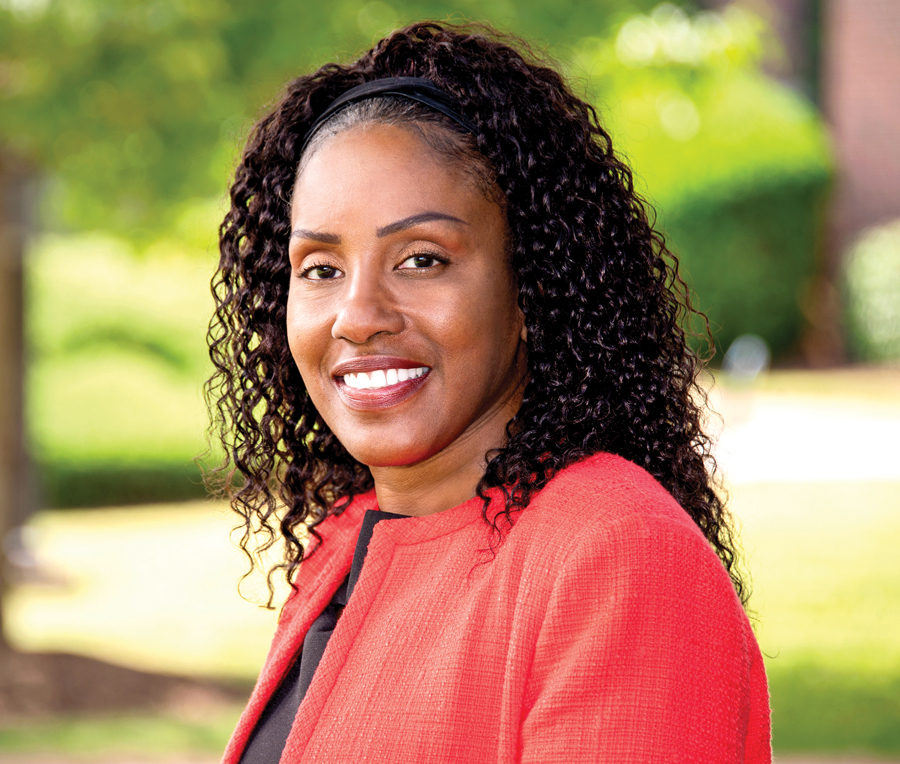

Nursing the Profession Back to Health
New program aims to promote equitable patient outcomes.
“Over time, we’ve realized that improving health outcomes isn’t just about focusing on patients or the system; it’s also about focusing on providers,” said School of Nursing dean Kenya Beard, Ed.D., AGACNP-BC, ANEF, FAAN, whose publications and research have focused on best practices to move the needle on diversity, inclusion and health equity. “The research shows that we all have implicit biases because of how our environment shapes our reality. We’re trying to help educators create curriculum and policies that acknowledge these implicit biases and their impact on our decision-making.”
HEIP aims to provide nurse educators with the skills to assess and create equity-minded solutions that influence health outcomes. Anti-racism content expert Danica Sumpter, Ph.D., RN, CNE will facilitate the sessions along with guest instructors. The hybrid program will be delivered synchronously over six months through a mix of virtual and in-person sessions at the Bronx Campus. Thanks to a grant from the American Nurses Association and the National Commission to Address Racism in Nursing, Mercy will waive the course fee for every HEIP participant this year. Participants will also receive a small stipend to offset the cost of long-distance travel.

“We’re going to help participants look at their institutions’ policies, practices and curricula through a lens of anti-racism and equity,” Beard said. “And then we’re going to help them make everything really inclusive.”
Twenty nurse educators from institutions across the country were chosen to participate in HEIP’s inaugural cohort this year. They bring diverse experiences challenging inequities in patient care and as nurses. For example, Jannyse Tapp, DNP, FNP-BC, assistant professor of nursing at Vanderbilt University School of Nursing, comes to this work as a Black woman who has encountered racism at times during her nursing education and practice. “My experiences have fueled my commitment to ensuring that future students and patients who resemble me encounter more positive environments,” she said.
Participants see HEIP as providing a safe space where they can learn how to tackle this important work. “For many nurse educators, discussions on policy and equity can be intimidating,” said Brittany Baker, DNP, APRN, FNP-C, CNE, clinical assistant professor and assistant director for program evaluation at East Carolina University College of Nursing. “Though we see firsthand the outcomes that patients experience because of inequity, educators do not always feel equipped to engage in discussions regarding policy and systems-level changes that can help to address disparities. Programs like HEIP are necessary because they provide safe spaces for development and practice.”

Many HEIP participants are looking forward to learning how to start, lead and sustain difficult conversations about racism and health inequities at their institutions. Laura Kincheloe, Ed.D., MSN, RN, NE-BC, director of nursing practice at the Texas Nurses Association, described the unacceptable health inequities in Texas: “Diversity, equity and inclusion programs have been greatly impacted by legislation, and nurse educators around the state feel conflicted on what they can say and teach in schools. I chose HEIP because I want to be the voice for nurses and empower them to discover their own voices.”
Beard hopes that HEIP will spark new research projects, conference presentations and discussions to extend the anti-racism work even after participants finish the program. “We were only able to invite 20 educators to join the HEIP this year, but there are hundreds of institutions that can benefit from this work,” she said. “It will take educators using their influence to share this information to unearth the policies and practices we inherited as nurse educators but never really questioned — until now.”
